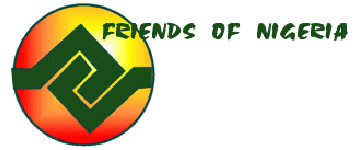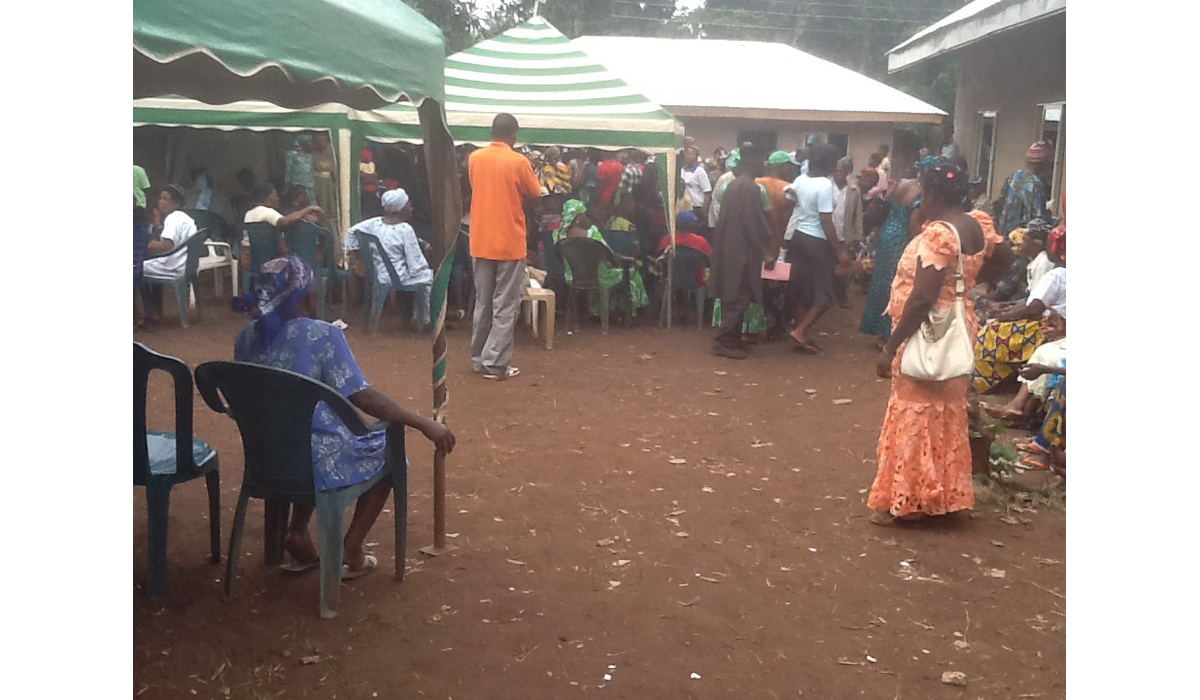African Community Health Initiative
This article appeared in the Winter, 2019 FON Newsletter
Who Is Queen Obasi? And What Is the ACHI?
by Lynn Cloonan Olson, (10) 64-66
Guns, bombs, friends and relatives killed and others dying of starvation, that was the world Queen Obasi knew as a young child in Amakohia, Imo State, or as we old PCVs knew it, the Eastern Region of Nigeria.
Her father had gone to the U.S. to attend university just before the war started. When he was able to return, he found his wife and children had survived (there was no communication while the war was on), but many cousins and his brother did not. He was devastated to see the horrible conditions left from the war. Fortunately, he found work at R.T. Briscoe, a Japanese company selling Toyotas in Eastern Nigeria. He felt fortunate among so many struggling in poverty. He wanted to help. He had been a teacher and cared about education so he built a school in Amakohia village for college age students who couldn’t afford to go away to university. After he died in 1993 the school was left empty and fell into disrepair.
Meanwhile, Queen went to the School of Nursing in Abba, where she earned a diploma, and she also earned a midwifery degree before meeting Cyprian Obasi. He had recently returned to his home, in the nearby village of Umugolo. He had just completed a degree at the University of Minnesota. He was a poor young man, so when they decided to marry, her father was furious and did not approve. Much later his romantic side showed through when he conceded that she had made a good choice.
After having their first child, a girl, in 1987, Queen and Cyprian came to the U.S. Within 6 months she passed the Nursing Board Exam and was hired by United Hospital in Newark, NJ. Three more babies quickly followed while Queen and Cyprian worked for four years in New Jersey.
Cyprian talked Queen into moving to Minnesota in 1992 where she immediately found work at United Hospital in St. Paul. While working there she earned her bachelor’s degree in nursing. She was hired as a school nurse but retained her night shifts at United Hospital. In addition to these two jobs she earned a master’s degree in community health.
Lynn Cloonan Olsen and Queen Obasi
Queen Obasi knew from an early age that she wanted to impact people’s health in rural areas of Nigeria having witnessed so much poverty and lack of healthcare during and following the war. Cyprian thought she was a bit unhinged but, as always, was supportive of her when she decided to go back each year to help in both their villages with healthcare assessments using local churches. However, they did not anticipate the crowds who began coming from other nearby villages. Determined to continue, Queen and Cyprian started a nonprofit, African Community Health Initiative (ACHI)
Some years after her father died Queen began to refurbish his old school into a health center for both assessments and education. Since that time, FON has provided generous funding to complete the health center, making it more secure for pharmaceutical storage and more hygienic by the addition of lavatories. FON has also sponsored several years of health assessments for neighboring villages when other funding fell through.
I first met Queen Obasi when she, her family and friends provided a fabulous meal for FON’s Nigeria Dinner in Minneapolis in 2012. John Romano, (11) 64-67, introduced her to me at a planning meeting at his home. She was so full of joy and laughter that I was immediately attracted to her. Over the years we have become close friends. She is tireless in her pursuit of money to support healthcare in this very underserved part of Nigeria. Although she retired as a St. Paul public school nurse last year, she continues to work at the hospital, earning money for her next trip. She talks to groups and fundraises through the Minnesota Nurses Association and her church, among others. Most importantly, she offers guidance and materials to other groups starting medical programs in Ghana, Kenya, and other rural areas of Nigeria.
Queen’s annual assessment program has become finely tuned to handle thousands of villagers. While testing glucose levels, blood pressure and eyes and providing de-worming treatment for children, health education and training have been her primary objectives. Pregnant women and mothers receive help with lifestyle changes, nutrition, mental health and stress. For pregnant women, who know they should register with a doctor for prenatal care but cannot afford it, there is counsel and education on how to avoid problems with the birth of their babies. Fistula can be avoided if adequate prenatal and emergency care is available when complications do arise during pregnancy – this is part of the assessment each expectant mother receives.
The health center is the key to the success of the ACHI program. Not only is it used for the annual assessments of some 3,000 people, but its use continues throughout the year seeing 150 to 250 people each month for maintenance. Queen makes one or two trips to Nigeria each year and is on the phone multiple times each week to deal with the many issues that occur during monthly maintenance visits. Thanks to FON, there are secure windows and doors so that medications can be stored there and used throughout the year.
What of those four babies Queen and Cyprian produced in their early years in New Jersey? They have all volunteered at the annual assessments and are pursuing careers and lifestyles similar to their incredible parents. Vivian, the oldest, has a master’s degree in community health. She is married to a Nigerian doctor and just made Queen a grandma this past year. She is the Project Manager for Hospice and Palliative Care at Allina Health Care Systems in St Paul. Chima is an MP in the U.S. Air Force in Italy. Uzoma is an entrepreneur in the computer industry as well as Communications Director for the nonprofit organization, African American Leadership Forum. The youngest, Lisa, graduates this spring from the University of Minnesota Medical School as an OBGYN. She will begin her residency in June with so many options that her mother doesn’t yet know where she will be going.
My favorite Queen Obasi quotation: When asked, “Why don’t you build orphanages?” She answered, “Why not take care of parents so you don’t need orphanages?” For example, teach them in their environment, use every opportunity as a teachable moment. Try to set teaching goals that are attainable and reflect evidence-based research. Then build on the progress made, or lack of progress, by evaluating and reevaluating the plan. The rest of the world has moved on and we in Nigeria are nowhere close to where we should be because we have no system in place to take care of the young, the old and the disabled.












